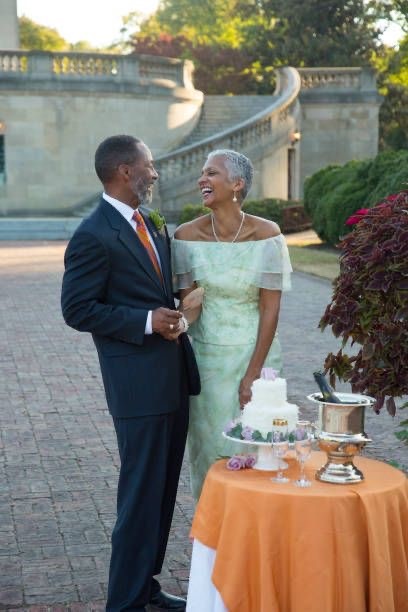Marriage in Nigeria isn’t just a union; it’s an ancient cornerstone built upon culture, tradition, and faith. It’s a journey that many embark upon, shaped by societal pressures and personal dreams. Yet, the burning question that haunts many is this: Is there a perfect age to say “I do”? In a world where personal aspirations collide head-on with societal expectations, the debate over the ‘ideal’ age for marriage ignites fiery discussions.
In Nigeria, young women were frequently forced into marriages in their vulnerable late teens due to a rush towards early marriage. Meanwhile, young males felt the unrelenting pressure of rapidly expanding their families. However, the course of history has changed, ushering in a period with greater opportunities for both education and employment. As a result, a lot of Nigerians are choosing to put off getting married in favour of focusing on their personal development and financial security. One pressing concern, however, still looms as they proceed down this path: Does delaying marriage have its own costs?
The concept that there is a “ideal” age for marriage is a product of societal pressure. Young individuals, especially women, are pressured to get married young by an unyielding influence inside their families and communities. The fear of being labelled as “leftover” or “undesirable marriage material” frequently drives people to make hasty decisions that are devoid of adequate planning. This social pressure, which borders on exploitation, compels people to make commitments they might not be ready for.

The repercussions of succumbing to the pressures of early matrimony are nothing short of disastrous. Young couples, often thrust into the crucible of wedlock by societal coercion, frequently find themselves grappling with a stark deficit in emotional maturity and financial stability, two critical ingredients for nurturing a healthy and enduring relationship. The outcome is tragically predictable – a multitude of these unions unravel, ending in bitter divorces or lingering unhappiness. The toll exacted on the emotional and psychological well-being of those caught in this whirlwind of societal expectations is immeasurable, painting a bleak canvas of regrets that could span a lifetime. It is an unequivocal call for a more contemplative approach to the institution of marriage in Nigeria.
A competing viewpoint, however, urges us to put off getting married so that you can focus on your studies and profession. This career has the potential for both personal development and financial stability, but it also comes with a unique set of difficulties. The pool of potential life partners can shrink as a result of the postponement of marriage, and women in particular sometimes struggle with increasing pressure to find a husband and have a family as they become older. As a result, there is a fierce juggling act that balances individual goals against societal expectations, resulting in a complex web of decisions and their effects.
The quest of love and commitment may also be overshadowed by materialism if marriage is put off. Genuine desires for compatibility and emotional connection might be overshadowed by the allure of personal achievement, which is frequently based on the amassing of income and the ascent of social standing. Relationships might be seen through a transactional lens in a world where pursuing personal goals typically takes precedence over matters of the heart. In this environment, the goal of financial success may take precedence over the feelings of true love and devotion. If this trend continues, it could foster a materialistic culture and obscure the fundamental meaning of commitment and love.

So, is there a definitive, one-size-fits-all ideal age for marriage in Nigeria? The answer, I dare say, resists easy categorisation. Rather than tethering the decision to marry to a specific age, it is imperative for individuals to refocus on the intangibles – emotional readiness, financial stability, and the willingness to shoulder the responsibilities that accompany marriage. The choice to embark on this journey should be a deeply personal one, liberated from the shackles of societal pressures and unburdened by the weight of expectations. After all, love, commitment, and a shared future should be guided by one’s own readiness and passion, rather than dictated by external conventions. In a rapidly evolving world, our hearts should be the compass that guides us down the aisle, not a rigid calendar.
Campaigns for education and awareness are a potent weapon against the ingrained traditions of the past, giving life to a more considered approach to marriage. They have the transforming power to provide people the knowledge and insight they need to make decisions about when and with whom to exchange vows. This educational campaign must be more than just a formality; it must convey the unwavering message of respect for one another, shared values, and open communication—the three pillars that create the foundation of strong and enduring relationships.
Let’s state with confidence that Nigeria’s marriage age must be liberated from the constraints of social convention and the ominous threat of being branded “leftover.” It’s time to say that being married is a conscious decision that is based on shared values, financial stability, and emotional maturity. We may steer the ship towards healthier, more fulfilling unions, unconcerned by the arbitrary limitations of age, by fundamentally confronting and altering our deeply set cultural conventions around marriage. Marriage ought to always be a choice, a proclamation of the heart, rather than a mandated ritual created by others.
Sources




